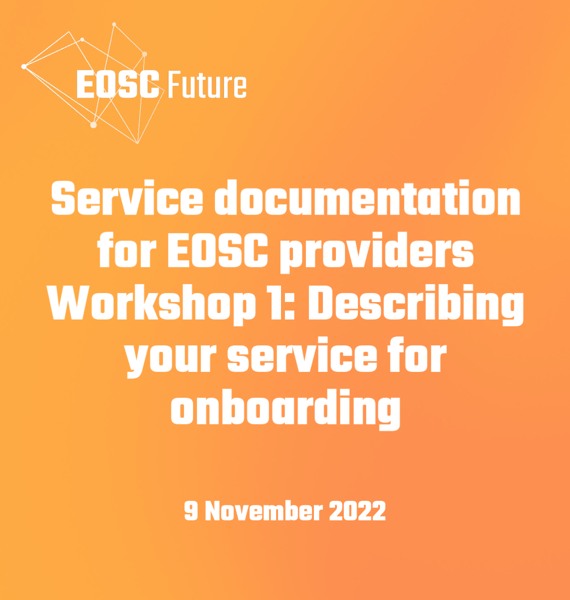Service documentation for EOSC providers Workshop 1: Describing your service for onboarding
Home | Events | Researchers | Service documentation for EOSC providers Workshop 1: Describing your service for onboarding

Online, 9 November 2022.
On 9 November, from 13:00-15:00 CET, the EOSC Future project, in which LifeWatch ERIC is partner, is organising a free, open-to-all, hands-on, online workshop on “how to write good and effective descriptions of services”.
A service text description is crucial to both engage with your potential users and make your service discoverable. An optimal service description text should ideally be short and to the point, while still explaining what the service does, who it was developed for, and what benefits users will gain from adopting/using it. Description texts can be used for example during the onboarding of services in catalogues (such as the EOSC Marketplace or the ENVRI Service Catalogue), or in other contexts when you want to advertise a service to various end-user communities.
This training event is built on the materials and concepts originally developed by the ENVRI-FAIR WP6 for the ENVRI Community 2022 Summer School that took place last July.
Clear and comprehensive documentation is absolutely essential for a service to be discoverable and successfully used – both by existing and potential new target groups. There are many components of service documentation, including service catalogue entries, promotional materials, usage instructions and tutorials, technical specifications and richly commented code. As an example of the first of these, a brief service description is a required metadata item to be provided during the onboarding of a service into the EOSC Marketplace.
This event will start by giving an overview of documentation types, and discuss some strategies for creating sustainable and effective service descriptions. This will be followed by practical hands-on exercises focusing on how to prepare service descriptions following the requirements of the EOSC service onboarding protocol. So bring your own service use case along, and join an interactive and productive description writing session!
If you wish to participate, register by 7 November 2022. Agenda and registration form here.